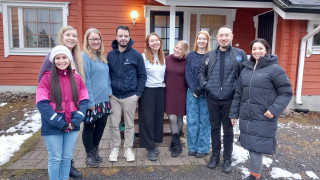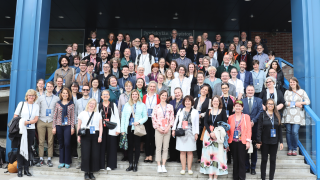Spring School 2025: Language, Culture, and Professional Development

This year, the Spring School was an inspiring day structured around the theme Language, Culture, and Professional Development. Whether it was the holistic nature of the central theme, the cultural and linguistic diversity of the participants, or the hybrid format of the seminar, each element contributed to a dynamic exploration of the globally increasing need for language awareness, multiculturalism, intercultural and transversal competences, the ongoing negotiation of identities, and, consequently, innovative pedagogical concepts and effective teaching practices.
The lead organizer of this year’s Spring School, Dr. Sotiria Varis, delivered the opening speech, highlighting the key elements of the seminar’s central theme and outlining the day’s program. Following her remarks, co-organizer Dr. Päivi Iikkanen provided a brief overview of the Kielikampus and its ongoing initiatives before introducing the “Safer and Braver Space” guidelines developed by the Equity Team. These principles emphasize active listening, open expression, and recognizing all participants as valued contributors to the seminar.
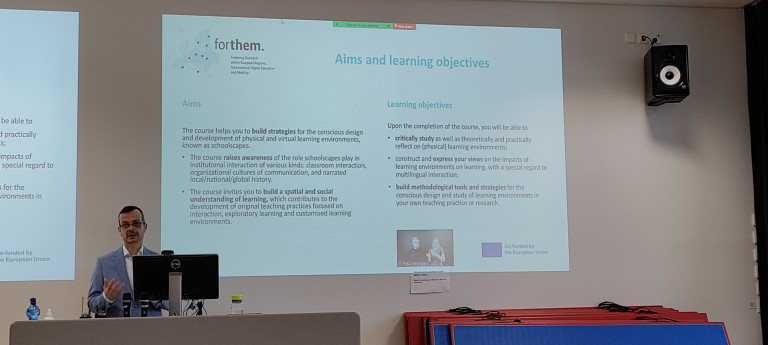
Picture 1. Senior Lecturer Tamás Péter Szabó delivering his keynote speech in person
This year’s invited keynote speakers, whose expertise closely connects to the central theme of the Spring School, were Senior Lecturer Tamás Péter Szabó and Senior Lecturer Josephine Moate. Dr. Szabó’s keynote speech, Making learning environments multilingual: Insights from teacher education initiatives, concerned the development and findings of a hybrid course titled OJUA2041 Language in Learning Environments (5–6 ECTS), created within the FORTHEM Alliance to foster a spatial and social understanding of education. Emphasizing student inclusion in the course design and research process, the course offered a flexible, interest-based structure that highlighted diversity, learner agency, and the dynamic role of language education policies, particularly in relation to foreign language awareness and minority groups. Preliminary findings indicated that while some students embraced the course’s openness, others required more scaffolding, particularly due to language barriers. Yet, many students reported significant gains in conceptual understanding and pedagogical vocabulary.
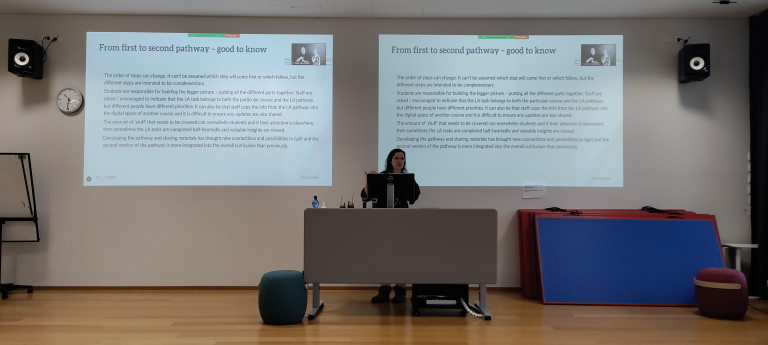
Picture 2. Senior Lecturer Josephine Moate delivering her keynote speech in person
Senior Lecturer Josephine Moate’s keynote speech, From steppingstones to a pathway for language-aware teacher education, complemented Dr. Szabó’s presentation seamlessly, offering a firm theoretical grounding for understanding language awareness as a vital competence not only for teachers but for every individual navigating today’s multilingual and interconnected world. Grounded in the idea that “language forms how we are in education,” her approach emphasized integrating language awareness across existing courses rather than isolating it as a separate subject, highlighting its interconnectedness with identity, subject matter, and broader educational purposes. Drawing on experiences from the Listiac project - linguistically sensitive teaching in all classrooms, she presented the eight-step pathway designed to promote language-aware beliefs, attitudes, and practices within class teacher education at the University of Jyväskylä.
The workshop, collaboratively designed and led by keynote speakers, offered participants the opportunity to engage in tasks currently used in the courses mentioned earlier. These tasks invited participants to reflect on their own schooling, recalling moments when language awareness was either present or absent, and to gain deeper insight into the course content as it stands today. Through this lens, they were able to explore how language awareness can shape the thinking, reflection, and practical actions of both teachers and learners in higher education contexts.
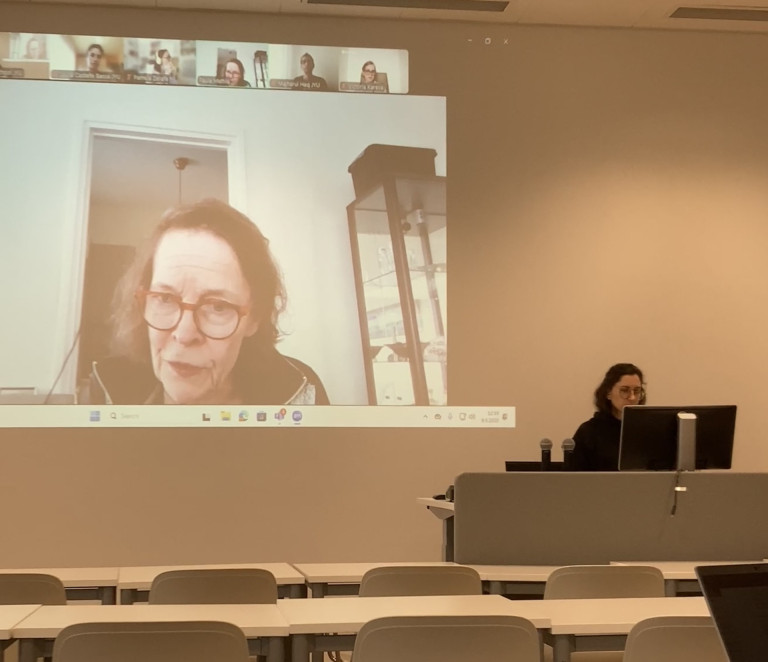
Picture 3. Paula Mattila presenting her study online, projected onscreen via Zoom
The first session featured four insightful presentations. Paula Mattila started the session with a presentation on her study examining whether transversal competences and powerful knowledge act as steppingstones or barriers in language teacher education. She highlighted their flexibility but questioned their clarity and implementation in Finnish high schools. This was followed by Majharul Haq’s presentation on how theoretical frameworks (e.g., culturally sustaining pedagogy, critical pedagogy, sociocultural theory, the asset-based model) can inform and enrich English language teaching. With his study, he aims to operationalize such theoretical frameworks to support instructors in addressing classroom diversity and enhancing their pedagogical approaches.
In the following presentation, Viktoriia Kareva and Tatiana Rasskazova talked about the emotional aspects of teacher training through the Vygotskian concept of perezhivanie, showing how emotions and the Zone of Proximal Development shaped trainee development in a CELTA course. Tatiana Rasskazova concluded the session with a presentation on mediation and learner reciprocity in adult EFL classrooms. Using the metaphor of a ‘tango,’ she illustrated how teaching and learner response are mutually influential. In her study, the approach fostered active participation and empowered learners by leveraging group dynamics, ensuring that every student was engaged. A key insight from this presentation was the importance of encouraging students to critically reflect on why an answer is correct, rather than simply providing the correct response, thereby promoting deeper cognitive engagement and learner autonomy.
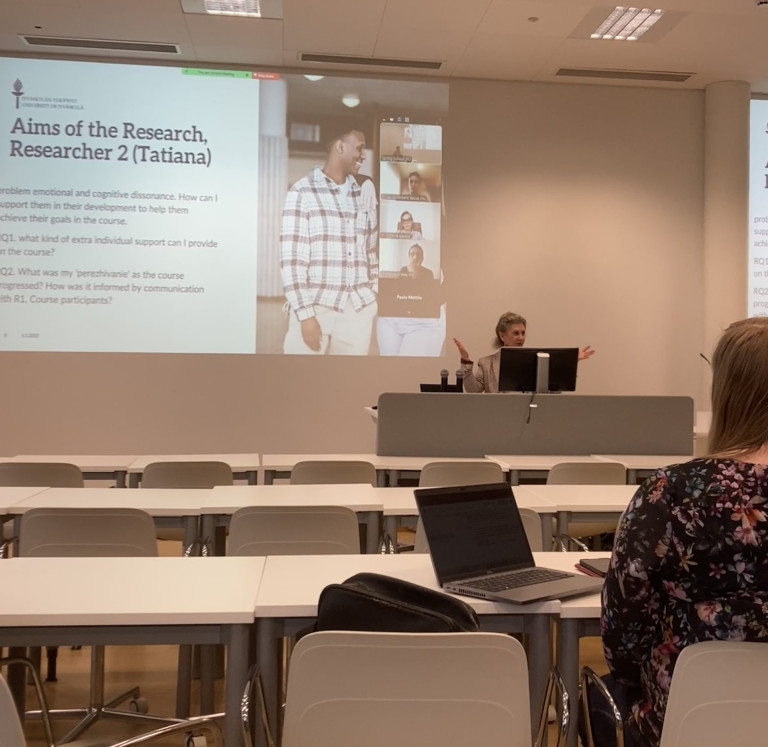
Picture 4. Tatiana Rasskazova presenting her study to both online and in-person participants
The second session featured six presentations with a strong focus on inclusion, identity, and critical perspectives. Ulla Sivunen began by examining the linguistic agency and digital participation of deaf and hard-of-hearing youth using Finnish Sign Language, revealing significant challenges in literacy, accessibility, and educational technology. Notably, the presentation itself served as a constructive example of inclusion, with active support from JYU’s interpreters ensuring full accessibility and participation. Yi Qi followed with a study on Chinese learners of Spanish, showing how oral communication strategies enhance language proficiency and learner confidence. Sarwat Anjum introduced her research, critically examining the impact of academic coloniality in English language teaching (ELT) in Pakistan through a classroom-based ethnographic study. Currently in the data collection phase, her work explores how colonial ideologies persist in educational beliefs and practices, emphasizing the need for mental and pedagogical decolonization within academia.
Afterwards, Mahnaz Shirdel turned the participants’ focus to the identity construction in Virtual Exchange settings. She emphasized the importance of thoughtful task design to foster genuine intercultural engagement. Later on, Charles Ononiwu demonstrated the role of political cartoons as powerful tools of political discourse. Focusing on cartoons from the 2023 elections in Nigeria and Finland, he analyzed how they reflect themes of power, politics, and active citizenship. Using a comparative multimodal approach, he emphasized representation, persuasion, and engagement as central strategies, showing how cartoons can shape public perception and foster democratic dialogue. Lastly, Arto Lehtola concluded the seminar with a longitudinal study on how young adults with depressive symptoms experienced school support. Despite academic success, many struggled silently without recognizing their need for help, highlighting the need for more individualized mental health support in schools.
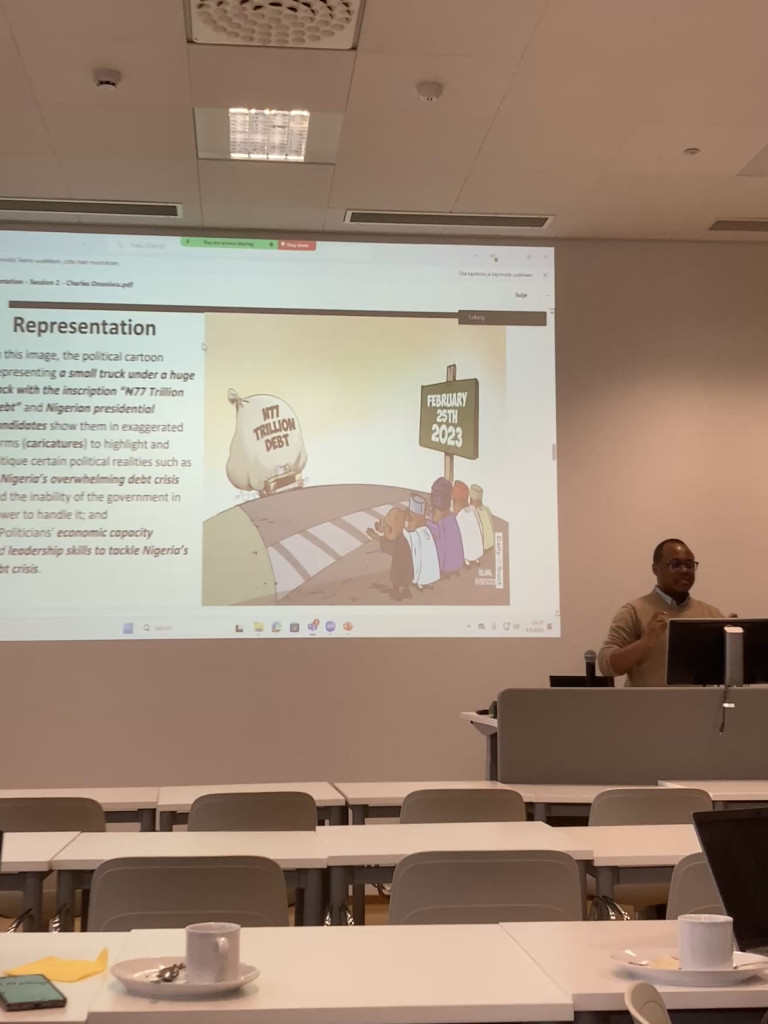
Picture 5. Charles Ononiwu sharing his findings from his PhD study
All the presentations sparked curiosity and ignited a sense of activism. In the first session, postdoctoral researcher Sotiria Varis, followed by Associate Professor Elizabeth Peterson in the second session, posed thought-provoking questions that initiated and facilitated discussion about the presented studies under way at the University of Jyväskylä.
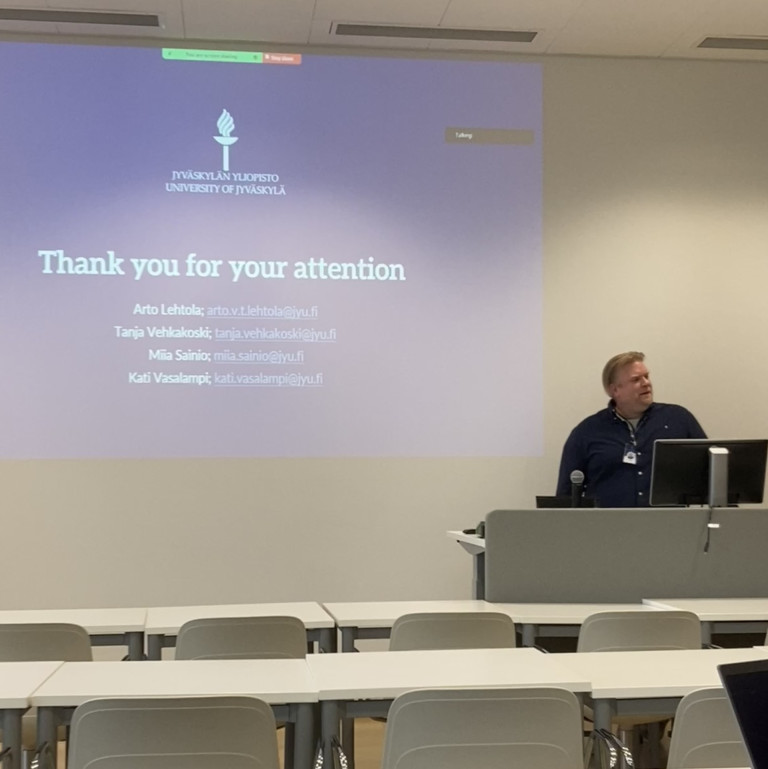
Picture 6. Arto Lehtola concluding his presentation with a word of thanks
Thanks to Spring School 2025, critical perspectives on educational policies, the urgent need for inclusive changes in curricula and classroom practices, and the widespread lack of awareness - or even apathy - toward lived experiences and societal realities fueled our discussions. Ultimately, the seminar invited participants to reflect not only on the current realities surrounding us, regardless of our roles, but also on our responsibilities as academics, experts, teachers, and individuals, and how we respond to them. The seminar demonstrated that fostering a more conscious, inclusive, innovative, and integrative world is attainable through collective effort and shared commitment.
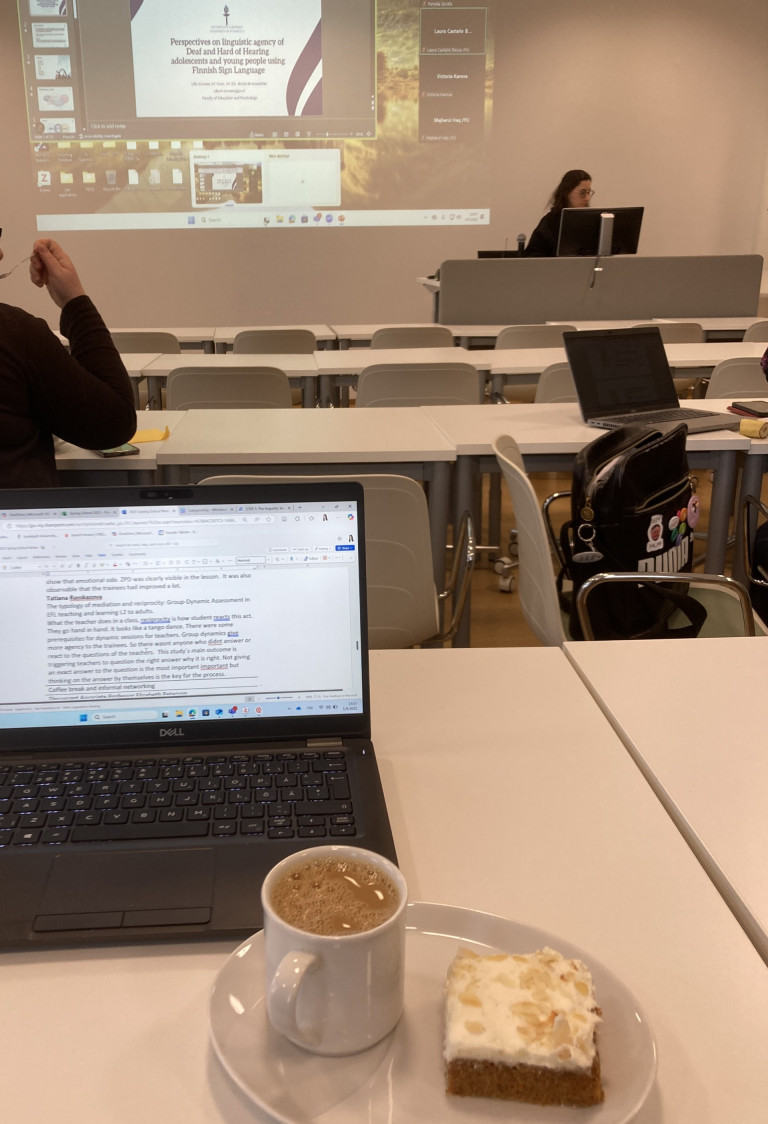
Picture 7. A cozy moment between sessions, enjoying seminar treats; coffee and cake during the break
Many thanks to everyone who contributed to this shared commitment.
We hope to see you again and more of you at the next Spring School!

